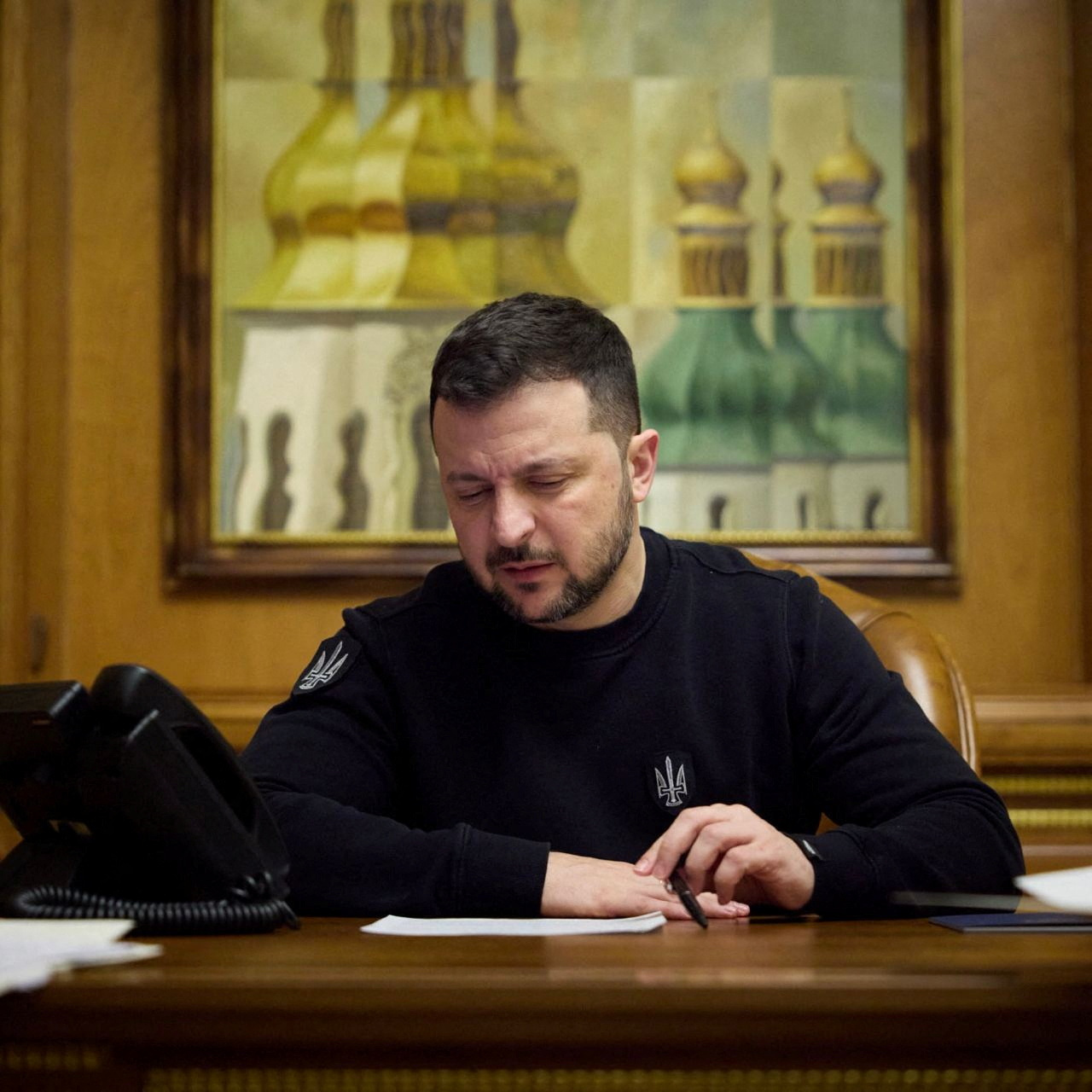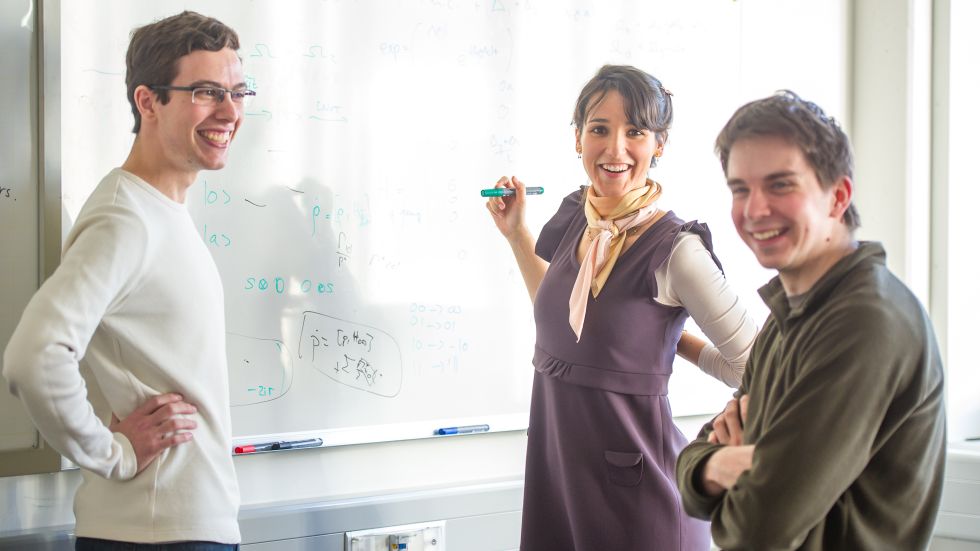- Plan Your Studies
- Study Programs
- Universities
- Requirements
- Living in Germany
- Accommodation
- Statistics & News


How to Apply for a PhD in Germany: Programs, Funding, & FAQs
If you’re considering advancing your academic journey with a PhD and have a passion for conducting research in your field, Germany could be an excellent destination for you. With its top-tier universities, exciting research opportunities, financial support, and diverse culture, Germany stands out as an excellent choice for PhD studies.
These are the main steps to doing a PhD in Germany:
Find a PhD Program and a Supervisor
- Decide Between Individual and Structured PhD Programs
- Meet All Requirements & Prepare Your Application
Apply for Doctoral Studies
Secure funding, get a student visa or resident permit, arrive in germany and begin your phd program, why pursue a phd in germany.
Here are some compelling reasons to pursue a PhD in Germany:
- Top universities. Germany boasts four universities ranked in the top 100 globally, offering access to world-class education and research facilities.
- International student community. Germany welcomes a diverse and thriving international student community, with over 458,210 international students studying across the country.
- Abundant research institutions. Germany’s 1,000+ publicly funded research institutions, spanning universities, applied sciences, research institutes, businesses, and government bodies, offer countless opportunities for collaboration and networking.
- Investment in research and development. Germany’s commitment to research and development is evident through its increasing expenditure, which reached a record high of 112.6 billion euros in 2021.
- Strong economy. Germany is known for its robust and stable economy, offering potential career opportunities in academia, industry, and research sectors after completing your PhD.
How to Apply for a PhD in Germany
Below, you will find all the steps you need to take, from discovering your perfect program to submitting your application and commencing your PhD adventure in Germany.
To start your PhD in Germany, define your research focus by considering your interests and academic background. Explore resources, attend conferences, and connect with professors. Use online sources, engage with academic communities, and seek advice from current PhD students for insights into the research scene.
If you’re already clear about your research direction, it’s time to search for suitable programs. The German Academic Exchange Service (DAAD) provides a comprehensive database of current opportunities, which you can explore at the DAAD PhD Database . Additionally, consider researching universities in Germany individually to understand what each institution offers in terms of research and programs.

Study at Berlin School of Business and Innovation
Creating Tomorrow's Industry Leaders
You will also have to find a supervisor. One way to do so is by visiting university websites to find faculty directories with profiles of professors and their research interests. Contact professors whose work aligns with your research interests, express your interest and inquire about supervision opportunities.
> You can search PhD programs using the GERiT database , which features over 31,000 research institutions.
Types of PhD Programs in Germany
Before you start searching for a PhD program, it’s essential to understand that in Germany, there are two different paths you can take when pursuing a PhD, each with its own set of advantages and opportunities.
Individual PhD Programs
An individual doctorate program is considered the more common and traditional PhD route in Germany. It is a flexible and self-directed path to earning a doctoral degree, particularly in fields like humanities and social sciences. You take the initiative to find a supervisor (called “Doktorvater” or “Doktormutter”) for your research project and often suggest your research topic.
There’s no fixed curriculum, giving you the freedom to set your research timeline and choose coursework. This approach requires self-discipline and active networking, including participation in doctoral candidate meetings and research events.
Structured PhD Programs
Structured PhD programs in Germany offer a clear path to a PhD degree, typically lasting three to five years. Unlike individual doctorate studies, they include a curriculum, research proposal submission that has to fit an existing program, and a set timeline for coursework and research.
Candidates benefit from advisor supervision and are encouraged to collaborate across disciplines, making structured programs ideal if you’re seeking a guided and comprehensive doctoral experience.
Ensure You Meet All Requirements & Prepare the Application
The requirements and application documents for a PhD in Germany can vary depending on your chosen institution and research area. However, as a general guideline, you should prepare the following:
- Academic degree recognized in Germany. Typically, you’ll need a master’s degree or a German state examination (Staatsexamen) to qualify for a PhD program.
- Copy of master’s thesis. Provide a copy of your master’s thesis, showcasing your research skills and the depth of your academic work.
- Research proposal. Craft a clear and comprehensive research proposal outlining your intended research topic, objectives, methodology, and significance.
- Statement of purpose. Write a statement of purpose explaining why you wish to pursue a PhD in your chosen field, your academic and career goals, and how this program aligns with your aspirations.
- Curriculum Vitae (CV). Prepare a detailed CV highlighting your academic achievements, research experience, relevant coursework, publications, and any other qualifications.
- Proof of language proficiency. Depending on the language of instruction (usually German or English), you may have to provide proof of language proficiency. You can do this with certificates like TestDaF, DSH, TOEFL, IELTS, or proof of previous studies in the language.
- Academic references. You may need to provide contact information or recommendation letters from professors or academic advisors confirming your academic abilities and research potential.
- Predoctoral examination. Some programs may require you to pass a predoctoral examination as part of the application process.
Once you’ve found a suitable PhD program and a mentor, and your academic qualifications are recognized in Germany, you can start your application. Depending on the university or research institute, you can apply online or by post, so it’s essential to check their specific requirements. Keep in mind that admission committees are selective and may conduct interviews to admit the best candidates.
Securing funding is a crucial step when preparing for a PhD in Germany. To meet visa requirements and stay in the country, you must demonstrate access to a minimum of €934 per month, totaling €11,208 annually. This proof can be provided through an admission agreement or relevant contract, or you can open a blocked account with individual funds.
There are various ways to financially support yourself while pursuing a PhD in Germany:
- PhD scholarships. DAAD offers the highest number of doctoral scholarships. PhD students get an average monthly stipend of €1,139.
- Paid PhD positions. Many universities and research institutions offer paid PhD positions in Germany. You will have a contract and work on specific research projects while receiving a salary.
- Research associate positions. You can also work as a research associate in a university, research institution, or company and receive a salary as compensation.
- Part-time jobs. Some PhD students/researchers work part-time jobs that are not related to their studies to secure additional income.
> Read more about the costs associated with studying in Germany.
> Explore scholarship opportunities.
Once your acceptance into the PhD program is confirmed by the university or institution, you can begin the process of applying for a student visa or residence permit. The PhD visa or permit requirements for Germany can vary depending on your nationality and individual circumstances:
Visa Requirements
Citizens of the EU, the European Economic Area (EEA), and Switzerland do not need any special permit or visa to pursue a PhD in Germany. They can research and work with just a valid passport or ID card.
For international researchers who are not citizens of the EU, EEA, or Switzerland, a visa will be required to work as a researcher in Germany.
The type of visa you need depends on your specific situation:
- Study visa. If you’re pursuing a full-time doctoral program, you may apply for a student visa.
- Research visa. If your focus is on research and you have a formal affiliation with a research institution in Germany, you can apply for a research visa.
- EU Blue Card. If your PhD offer includes a gross annual salary of at least €45,300 (or €41,041.80 in certain professions), you may be eligible for an EU Blue Card, which is a special residence title for international academics.
Residence Permit Requirements
Once you arrive in Germany, you’ll need to apply for a residence permit based on the visa you have:
- Study permit. If you’re accepted into a PhD program at a German university, you can get a study-based residence permit for up to two years, extendable.
- Research permit. If you’re a researcher with the right qualifications for doctoral programs, you can get a research permit for Germany. This requires a contract with a research institution for your project.
- EU Blue Card. You may be eligible for the EU Blue Card, which is for foreign academics and qualified workers in Germany. To get it through a PhD offer, your salary should be at least €45,300 per year, or €41,041.80 for certain bottleneck professions .
*Note that nationals of certain countries , including the United States, Australia, Israel, Japan, and Korea, who are not required to obtain a visa, must still apply for a residence permit.
> For more specific information tailored to your situation, we recommend contacting the German embassy or consulate in your home country. You can also use this visa navigator.
Arriving in Germany and commencing your PhD program is an exciting step, but there are certain formalities you need to take care of. The international office at the university or a representative can guide you, however here are the main things to take care of once you’re in the country:
Register Your Residence
Shortly after your arrival, you must register your residence at the local registration office (Einwohnermeldeamt or Bürgeramt). This is mandatory, and you typically have a window of two weeks to complete this process.
Obtain Health Insurance
Everyone in Germany, including international PhD students, is obligated by law to have health insurance coverage . The type of health insurance you are eligible for depends on the source of your funding:
- Doctoral candidates with an employment contract are typically insured automatically with a state-regulated health insurance provider (Gesetzliche Krankenversicherung -GKV)
- Doctoral candidates without an employment contract (with a fellowship or private funding) may choose between:
- Voluntary health insurance coverage with a state-regulated provider.
- Coverage with a private health insurance company.
Some exceptions allow you to retain your insurance from your home country, such as students from a European Union (EU) country or other countries with social security agreements with Germany.
Open a Bank Account
It’s advisable to open a German bank account as soon as possible. Many financial transactions in Germany, including receiving your stipend or salary, are typically done through a German bank account.
Enrollment at University
If your PhD program requires enrollment at a university, you’ll need to complete this step. Submit the necessary documents to the university’s enrollment office, which may include your admission letter, passport, proof of health insurance, and proof of financial means.
Frequently Asked Questions (FAQs)
There’s a lot to think about when you’re considering pursuing a PhD, especially if it’s in a foreign country. We’re sure you’ve got more questions, and we’re here to help.
What Is the Duration of a PhD Program in Germany?
In general, a PhD program in Germany typically lasts between three to six years.
The duration of a PhD program in Germany can vary depending on several factors, including the university, the subject area, and individual progress.
Are PhD Programs in Germany Tuition-Free?
Most PhD programs in Germany are tuition-free, at least for the first six semesters. However, if you are enrolled at a university, you will need to cover a semester fee. This can vary depending on the university but usually falls within the range of €100 to €350.
Is Knowing German Mandatory to Pursue a PhD in Germany?
Knowing German is not always mandatory to pursue a PhD in Germany. Many German universities offer PhD programs in English, especially in fields like science, engineering, and the humanities. In such programs, you can write your thesis and communicate with professors and peers in English.
However, language requirements differ by university and department. If your program is in German, you might need to prove your proficiency. Knowing German can also be helpful for daily life and integration if you’re living in Germany.
Will I Get a PhD Salary in Germany?
PhD candidates in Germany, whether affiliated with universities, research institutions, or companies collaborating with them, typically receive financial support in the form of a salary or grant.
The majority of doctoral positions are structured under the TV-L (Tarifvertrag im Öffentlichen Dienst) salary scale, often falling within the TV-L 13 category, with a salary range spanning from €4,188 (Tier 1) to €6,037 (Tier 6).
Salaries are typically determined based on a wage agreement that specifies the contract tier (Stufe) and working hours (percentage-based). Many entry-level PhD students start with tier 1 contracts that are not full-time. For example, if your contract places you in Pay Group E-13 Tier 1 of the TV-L and you work at 75% capacity, your monthly gross salary will be €3,141.
Can I Work While Pursuing a PhD in Germany?
It’s generally allowed for PhD students in Germany to have part-time jobs to cover living expenses. However, the rules and expectations can vary depending on your supervisor, field of study, and specific circumstances.
While part-time work is an option, keep in mind that pursuing a PhD can be quite demanding, often requiring long hours of research and study. It’s essential to find the right balance between work and your academic commitments. Additionally, make sure to be aware of any legal and contractual obligations related to your employment while studying for your PhD.
What Is the Process for Defending a PhD Thesis in Germany?
In Germany, defending your PhD thesis involves several steps. You start by submitting your thesis and necessary documents, making sure they meet all the formal requirements. A commission is formed, and you may have the opportunity to suggest reviewers.
Then, you will have to prepare and undergo an oral defense, which can be either public or private and typically lasts between 30 minutes to 2 hours. During this, you present your research and discuss it with the committee.
The outcome of this discussion determines your final grade, which you receive after the defense. If everything goes well, you’re granted the Ph.D. title and have about two years to publish your dissertation.
What Are the Career Prospects After Completing a PhD in Germany?
After completing a PhD in Germany, career prospects are promising. Graduates often find opportunities in academia as professors or researchers or in various industries, including technology, healthcare, and finance. Germany’s strong economy and research-oriented environment make it an attractive place for career development.
Join 262,114 students interested in studying in Germany

Download The Guide

Quick Links
8 Steps to Study in Germany How To Apply To Study in Germany German Education System Requirements Universities in Germany International Programmes Financing Your Studies German Student Visa German Health Insurance Germany Blocked Account Learn German Guide German Cities Cost of Living
Latest News and Statistics
Over 3,800 university students in germany were under 18 in 2022, higher education in germany: key trends & statistics, german universities’ spending €3.3 billion higher in 2022, daad allocates €120 million for recruiting international students as highly skilled workers in germany, int’l students in germany to enjoy more employment freedoms under new immigration law.
- Privacy Policy
- Cookie Policy
- Value Package
- Blocked Account
- Health Insurance
- Current Account
- Study Finder
- Study Eligibility Checker
- Accommodation
- Learn German
What We Offer
- Bank Account
- Living in Germany
- Studying in Germany
- Working in Germany
About Germany
- German Cities
- Tourism in Germany
- German Culture
- Visa for Germany
- Costs of Living in Germany
- Finance in Germany
- Health Insurance in Germany
- Driving in Germany
- Renting in Germany
- German Universities
- Free Studies in Germany
- German Education System
- Germany vs. other Study Destination
- German Degrees
- Application Process to Study in Germany
- Financing your Studies in Germany
- Best Universities in Germany
- German Business Culture
- Best Cities in Germany for Expats
- After your Bachelor's in Germany
- After your Master's in Germany
- About Expatrio
- Partner log in
- Partner Log-in
PhD in Germany [Complete Guide]

Few achievements in life match the feeling of being awarded a PhD. Doctorates represent the pinnacle of academic achievement, and require years of diligent study.
The rewards, however, are great. Not only does a Ph.D. give you bragging rights at cocktail parties, but it also provides excellent job prospects and earning potential. But what if you want to study for a PhD outside of your home country?
Germany is an increasingly popular destination for international students, offering high-quality education and research facilities at a fraction of the cost of studying in the US or UK. Germany offers and takes research extremely seriously, and is one of the world's most popular places to study for a PhD or higher education.
But what kinds of PhDs are available, how much do they cost, and how do students apply? Let's find out.
General information
Germany is widely seen as one of the best places to apply for a PhD worldwide
The country offers excellent education and research facilities as well as competitive funding opportunities for doctoral students.
There are different types of Ph.D. programs in Germany. That's no surprise, as Germany invented the elite academic qualification in the 19th century . German PhDs cover subjects as diverse as history, linguistics, and philosophy, or chemistry, molecular biology, earth sciences, and computer science. Most lower level degree subjects can be extended to PhD level if the student desires.
How can I get a PhD in Germany?
There are two main ways to complete a PhD in Germany. Most commonly, students form a working relationship with a specific Doktorvater or Doktormutter (or "supervisor" in English). They then work on a tightly focused research task for the duration of their studies. The fruits of their university research are then presented as a "Doctorate" ( Doktorarbeit ), which tends to resemble a medium-length book.
In some cases, "Structured" PHDs are available . These resemble taught Masters degrees, but still have a strong research element. They may also focus on work placements.
How long does it take to get a PhD in Germany?
Generally speaking, a standard research-oriented German doctorate can be obtained within 4-6 years . This depends on the speed of work and personal factors such as having children. Structured doctorates can often be completed in just 3 years , but this varies from course to course.
International PhD Programs
Germany welcomes international students to study at PhD level
Many programs offer specialist assistance and course structures for overseas students.
DAAD (the German Academic Exchange Service) brings together grants for international students at leading German universities . It's the best place to start hunting for scholarships to help fund your studies .
Is a PhD in Germany free?
PhDs at German universities are usually available free of charge for international students , but living costs aren't covered. However, scholarships can cover (most) living costs. DAAD grants will average around €1,200 per month , and additional funding sources may be available.
A group of prominent universities has also created a funding scheme called StipendumPlus , which also distributes grants. Between them, finding financial help should be possible.
Do PhD students get paid in Germany?
It's not routine for international students to be paid for their work , but it is definitely possible to find paid research posts. Enquire with your supervisor, and you may find that paid jobs are available to supplement your income.
How to find your PhD Position
Finding the right PhD is essential
It's a huge investment of both finances and time , and could change the course of your life. So here are some useful tips to remember.
Take time to find a supervisor you want to work with. Balance their academic record with the resources of the university, and have a chat with them if possible. You need to be able to work with them on a daily basis.
- Searching for doctorate programs has been made much easier by databases like DAAD . Use them to assess every option.
- Consult university rankings to avoid poor-quality teaching.
- Check for services like career advice and travel grants. As a PhD researcher, you may need to travel worldwide, and this can be expensive.
- Ask about work opportunities as well. Research posts at your university are the best way to add some extra income, while gaining relevant experience.
Requirements and Application
Before you can commence doctorate studies in Germany, you'll need to complete an application process
If you want to study a traditional PhD, applications must be carried out via your prospective supervisor .
When you contact the supervisor and they agree to work with you, they will forward your request to the relevant faculty . The department will then request:
- A statement from your supervisor
- Proof of your academic qualification
- 1-2 academic references
- Proof of language proficiency
- A valid student visa and health insurance
Structured PhDs don't require students to go through a supervisor. In those cases, applications are made via the faculty, and will usually be carried out via online portals.
To study a PhD, requirements generally demand a Masters degree (8 semesters of university education), as well as English and German proficiency to a high level.
IELTS English certificates , and TestDaf German courses are advisable for all doctoral candidates, even if they have studied those languages in the past.
PhDs are a huge investment of both finances and time, so it's important to do your research before choosing a supervisor and program. Make sure to consult university rankings and databases like DAAD when making your decision. Once you've been accepted into a program, make sure to apply for scholarships and grants to help cover your living costs.
Finally, remember to ask about work opportunities as well – research posts are a great way to gain relevant experience and supplement your income.
Find Your Perfect Match
Search by city, major, or field of study and find your dream study program in Germany.
Exchange Programs in Germany [Complete Guide]
Best German Universities for Medicine
MBA in Germany

This might also be of interest to you

Pre-Studies & Studienkolleg in Germany
Germans are huge believers in preparation, and that's especially the case in the higher education sector. German universities welcome international...

Few achievements in life match the feeling of being awarded a PhD. Doctorates represent the pinnacle of academic achievement, and require years of...

German Language Course Degrees [Guide]
Learning German is an essential step for almost everyone who makes their home in the country, and it can also be one of the most enjoyable...

Master's Degree in Germany [Guide]
Germans value skills above almost everything else, and the nation's universities offer a vast range of subjects, in M.A., M.Sc., and M.Eng. formats.
![phd length germany MBBS in Germany [Complete guide]](https://8668267.fs1.hubspotusercontent-na1.net/hub/8668267/hubfs/Expatrio%20Hatch%20Child%20-%20Theme/Blog%20Graphics/Studying%20in%20Germany/mbbs%20in%20germany.webp?width=374&name=mbbs%20in%20germany.webp)
MBBS in Germany [Complete guide]
If you want to obtain a "Bachelor of Medicine, Bachelor of Surgery" (MBBS) qualification, studying abroad is often the best route to choose. Germany...

Best English-taught Master Programs in Germany
Germany is renowned for its high-quality education, and many of its universities rank among the best in the world. Additionally, studying in Germany...
- | Intranet
- | Portals
- | ULB Catalogue

Doctoral studies at HHU
There are several ways to earn a doctorate depending on the faculties, the individual research fields as well as on the type of doctorate. It can be completed within a structured programme or quite independently under the supervision of a professor. Over a period of about three to four years, doctoral students conduct independent research, write a dissertation and usually defend it through an oral examination. The starting date is not bound to the university semesters, but rather depends on the available funding options for the individual research projects.
At HHU, doctoral candidates are individually supervised and supported in order to advance their careers. The following applies to all faculties of HHU:
- the regulations for doctoral studies stipulate that doctoral theses must be overseen by two supervisors; i.e. a second supervisor may be added to the PhD advisory committee
- the course "Good Scientific Practice" is mandatory for all doctoral candidates
- the doctoral research is conducted within a structured doctoral programme or, alternatively, can be completed within the framework of a structured curriculum at the respective faculties' graduate academies
- international junior researchers receive advice and support from the Junior Scientist and International Research Center (JUNO) regarding their stay in Germany and at HHU
- the faculties' graduate academies offer a broad qualification programme for doctoral students and a comprehensive counseling service
- the Heine Research Academies and the graduate academies of the Faculty of Medicine (MedRSD) , the Faculty of Mathematics & Natural Sciences (iGRAD) and the Faculty of Arts and Humanities (PhilGRAD) provide a common framework of support and structured education for all doctoral researchers.
In Germany and at HHU, the most common PhD track is completing an individual doctorate under the supervision of a professor and thereby conducting research largely independently on one's own research topic. This offers a great deal of flexibility but also demands a high degree of personal initiative and responsibility. To start such a doctoral project, you first need to find a supervisor at HHU. The supervision of a doctoral thesis is an individual agreement between the doctoral researcher and the supervisor. In some faculties at HHU (e.g. Faculty of Mathematics & Natural Sciences) an additional supervising professor is mandatory.
Doctoral students conducting an indivual doctorate may be employed by the supervisor's institute, which often requires them to work on a specific project or to participate in the teaching requirements of the institute. Vacancies for this path to a doctorate are often advertised on the research institute's website or can be found at the HeRA job portal . Doctoral researchers who are not employed by the institute are advised to organise funding for their dissertation project , for example by a scholarship.
How long it takes to complete an individual doctorate depends mainly on one's own time schedule. Three to four years are within in the normal range.
Find further information on how to apply for an individual doctorate here .
In structured doctoral programmes, doctoral students and their research topics are integrated into a larger scientific framework in which the students work on a common research focus or methodology. These programmes are often interdisciplinary and/or have a strong international orientation with English as the team language. In general, they offer a subject-specific curriculum as well as opportunities to acquire transferable skills and additional qualifications. Doctoral students are generally supervised by a thesis advisory committee, i.e. in teams of several professors participating in the programme.
At HHU you have a broad spectrum of structured doctoral programmes in research training groups and graduate schools funded by the German Research Foundation (DFG), the Excellence Initiative, the federal state North Rhine-Westphalia (NRW) and HHU itself. Sometimes they include collaborations with other universities, non-university research institutes such as the Helmholtz Association or the International Max Planck Research Schools (IMPRS) as well as other international partners.
Programme specific scholarships or job offers for doctoral candidates usually provide funding for at least three years. Find further information on available scholarships or job offers at the graduate programmes' websites or and the HeRA job portal . Click here for details on how to apply for a graduate programme.
Steps to a doctorate
Application
Re-Registration of doctoral students for a new semester
Events & dates, 24.04.2024, 17:00 - 19:00 hhu welcome days for researchers - networking event, 25.04.2024, 09:00 - 13:00 welcome days for researchers - online information sessions, 15.05.2024, 12:00 - 13:00 informationen zum wissenschaftszeitvertragsgesetz.

Scholarships
Events & Webinars
Course Finder
Universities
Counsellors
Back to all Blogs

PhD in Germany: The Ultimate Guide
Ph.D. in Germany is almost free, if you’ve a great academic background. Get step-by-step directions on finding and applying for a suitable PhD in Germany for indian student.
How to Study a PhD In Germany?
As in many countries, the aim of the PhD program in Germany is to work on and publish a written doctoral thesis/dissertation . PhD degree is awarded based on examination of the thesis, which must be published in journals specified by the universities, and by an oral examination of thesis presentation.here are some top reasons to study in germany .
Let’s first understand the options you would have for a PhD in Germany -
What is University System in Germany?
There are mainly two types of higher education institutions in Germany -
- Universities (including Technische Universität, also called TU) are research-oriented institutions and offer a wide variety of subjects. Many of the universities also award PhD (usually called doctorate in Europe) degrees.
- Fachhochschulen (University of Applied Sciences, also called FH), are practice-oriented institutions and offer course mostly in engineering, business administration, social sciences and design. They do not award doctorates.
Bachelor’s and master’s degrees awarded by both types of universities (Universities and Fachhochschulen) are legally equivalent. After completing Master’s from either of the institution, you can get admission to a PhD program at a University.
Unlike in the US, a fter an Undergraduate (Bachelor’s) degree, you can directly get enrolled for a PhD program at a University in Germany. Most US universities only requires an Undergraduate degree for admission to PhD program but all of them will require you to take additional coursework.
Germany is also home to a number of prestigious research institutions, such as EMBL. These research institutions can’t award PhD degrees but they host a large number of PhD students for the major part of their doctorates. These students are jointly-supervised by a professor in a university (in Germany or abroad) from which the PhD will be awarded.
What are Types of PhDs in Germany?
Following are the two types of PhDs in Germany:
The traditional approach with Individual Doctorate
Under traditional approach, you need to identify a supervisor at a German university who is willing to guide for your research.
You get lots of flexibility in terms of no compulsory attendance, deadlines and curriculum . As you would largely be working independently, you are expected to work hard and demonstrate more personal initiative and responsibility.
In addition to conducting research work at a university, you could also complete a project at a non-university research organization or at a German company in the industrial sector.
The average length of this kind of PhD is 3 to 5 years.
* Structured Programs with Doctorate in a Team of Researchers
Under structural program,
- First , your research proposal have to fit within existing PhD programs, unlike Individual Doctorate, in which your PhD can be more freely structured to suit your research project.
- Second , you work as part of a group of doctoral students and all are guided by a group of supervisors.
There are over 700 programs of this nature available in Germany, often with an international make-up, with English as the team language.
The majority of doctoral candidates still complete a traditional doctorate. However, in recent years, a large number of students are choosing structured program, especially in the natural sciences and mathematics.
Is PhD in Germany for Free?
Almost! There is no tuition fee for PhD program in Germany.
However, you will be asked to pay small administrative fee in the range of €50 – €250, which is to cover service costs such as student governance and services, public transport etc. In addition, you will also have to take health insurance.
So your main cost for a PhD in Germany is you living expenses.
An average student in Germany needs about €820 (US$921) per month to cover living expenses, including rent, food, clothing, transportation, working materials, recreation and other costs.
How to fund a PhD in Germany?
You have various ways to raise money including by teaching appointments, grants, scholarships and part-time jobs.
Under traditional approach of PhD, your supervisor may nominate you for a grant, for example from the Studienstiftung des Deutschen Volkes (German National Academic Foundation).
Depending on the subject, there are also numerous organizations in Germany that award individual grants. These include Federal states, foundations, religious organizations or foundations associated with political parties. Funding periods and eligibility criteria will vary but may include allowances for language course, families with children as well as research travel costs.
To get part-time work work, as an international student, please ensure that your residence permit allows you to take paid work. Also, you will be limited to working up to 190 full days or 240 half days per year before you must apply for a work permit.
Under structured program, you also need to include an application for funding in your PhD application. If you are accepted for a PhD, you can expect a monthly allowance of €1,000 – €1,400, which is sufficient to meet your living expenses.
What are the entry requirements?
Entry requirements will vary between universities and PhD programs. In general, you are expected to have a great higher education degree , which is equivalent to a German master’s degree along with a high GPA. Many of our successful students have a GPA of above 75%.
Each university is responsible for decisions on the admission of doctoral students and the accreditation of qualifications.
Some universities may ask for proof of English language proficiency , for example by requesting TOEFL or IELTS scores, while universities will ask for very good German language skills if your thesis is to be written in German.
How to apply for a PhD in Germany?
You need to apply to individual institution. Following are the general steps that you should follow:
Find a supervisor or a structured program
Traditional PhD: You will need to find a suitable professor who is willing to be your supervisor. You may be able to find a supervisor through contacts from your own university, or by searching for institutes and research centers or teams which relate to your area of interest. Here are some websites that you can use to find a suitable supervisor: DAAD, PhD Germany, Hochschulkompass.de and academics.de.
You should directly reach-out to potential supervisors in your area of research interest. You should send a brief and well-structured outline of your PhD proposal along with your academic background and CV. This process takes time and you should allow plenty of time before intended start date of your PhD.
Structured PhD - You should identify universities in your research area and contact them directly. Use the reference websites mentioned above to find appropriate universities. You would be required to complete the application procedure, as instructed on their websites and within the application deadline.
Admission procedures
Once you have a letter of acceptance from your supervisor or a confirmation of admission for a structured program, you should apply for formal admissions .
These vary depending on the institution. At this stage, the relevant department or doctoral committee must confirm your eligibility as a doctoral candidate. This usually involves completing an application that includes a statement by your doctoral supervisor, certified copies of certificates and the university degree that entitles you to engage in doctoral study.
Your application may also include an English or German language test result, if applicable. The Student Office of your chosen university will review these documents and grant permission for you to commence doctoral studies.
Next comes enrolment after a university accepts your application . Some universities may not require you to officially enroll at university. You an find about this requirement in the doctoral regulations of your university’s official website.
Enrolling secures you a better legal status as an international student. So try to get it done. You must also make sure your Master’s degree is recognized, obtain a residence permit and/or student visa, and ensure you have adequate finances for your stay.
Do I need to speak German?
You don’t need to be able to speak German for your PhD. For Individual PhD, your thesis can often be written in English, whereas for Structured PhD, you re allowed to complete your doctorate in English.
However, you will have much better academic experience, student life and access to projects, internships and part-time jobs if you can speak German language. It’s not difficult. Couple of hours every week for 4-6 months should get you speak a decent level of German language. So please make some effort and start learning German language.
Begin your Overseas Journey with us
Recent blogs.

25,000+ students realised their study abroad dream with us. Take the first step today
Here’s your new year gift, one app for all your, study abroad needs, start your journey, track your progress, grow with the community and so much more.

Verification Code
An OTP has been sent to your registered mobile no. Please verify

Thanks for your comment !
Our team will review it before it's shown to our readers.

- Study in Germany /
PhD in Germany
- Updated on
- Dec 2, 2023

With its unparalleled focus on research, innovation, and development, Germany offers innumerable opportunities to individuals not only in STEM courses , but also in social sciences , humanities , and languages. Further, colleges in Germany are known for their outstanding faculty, internationally recognized curriculum as well as bright career prospects both in enterprises and research organisations. Be it Berlin, Munich, Frankfurt, or Cologne, German cities serve as hubs for manufacturing, international business and finance sectors and housing headquarters of several giant companies. If you are interested in pursuing a PhD in Germany, this blog will help in breaking down its process.
This Blog Includes:
Why study for a phd in germany, types of phd courses in germany, academic session, phd in germany: admission requirements, phd in germany: admission process, writing your research proposal, top universities for phd in germany, cost of studying phd in germany, phd in germany with scholarships, visa process for international students to germany, can i work in germany after my phd, work opportunities, salaries after phd in germany.
The PhD study in Germany epitomizes the country’s mastery of higher education. Let us examine the advantages of studying PhD programs in Germany in further depth:
Free Adult Education: In terms of higher education, Germany has distinguished itself. It offers free education to both domestic and international students. Compared to other international colleges, it only costs a student 310 EUR to cover the semester as well as travel expenses.
Immensely well infrastructure and facilities: After the United Kingdom and the United States, Germany has been ranked as the world’s third finest education destination, and its amenities reflect this. A multitude of non-university research groups contributes to high-quality Ph.D. education at German institutions.
PhD in Germany with Scholarship: Germany values all students’ knowledge, and as a result, they never allow anyone to stop researching due to a lack of funds. There are organizations whose major goal is to offer enough funding to ensure that the informed are loved eternally.
In Germany, there are two broad categories into which PhD courses are divided, namely, individual doctorate programs and structured PhD degrees. Read the following to know more:
Individual Doctorates [3 to 5 Years] Considered the most favourable choice for a PhD in Germany, an individual doctorate also called the traditional PhD is a more direct method of gaining a doctoral qualification. The process of application involves approaching a potential professor or supervisor who is teaching at the university directly, demonstrating how one’s research interests align with the professor, and asking whether he is willing to act as a supervisor. Typically, this process requires a considerable amount of effort and time as it involves finding the right professor, proving that one’s experiences in prior degrees and experiences make him the right candidate, and submission of a research proposal, among other steps. In a traditional PhD, learners have to submit a doctoral thesis focusing more on the research and an oral presentation and examination of their work testing their wider knowledge in the field.
Structured PhD Degrees [3 to 5 Years] An individual opting for a structured PhD in Germany undertakes research work as part of a group of doctoral students who are guided by a team of supervisors. Structured PhD degree admissions and application process is done through online portals of universities such as DAAD. The curriculum may involve interdisciplinary studies along with an emphasis on scientific tools and techniques, and interpersonal skills. As far as a structured PhD is concerned, students need to complete several mandatory units to achieve 180 to 240 ECTS credits that are essentially required in doctoral studies. They will be assessed on their understanding of course content delivered in seminars and lectures, besides submitting their thesis and completing the oral exams.
If you plan to study in Germany , your academic year will typically comprise 2 semesters – Wintersemester which runs from October 1 to March 31 with Christmas and Easter break; and Sommersemester which runs from April 1 to September 30 with breaks from July to September.
For pursuing a PhD in Germany, the documents to be submitted remain more or less the same throughout the universities in Germany. However, there can be some exceptions. Following are the required things you can’t miss while applying for a PhD:
- Materials to be submitted at the time of application include aptitude scores like GRE or GMAT and English-language proficiency scores of IELTS or TOEFL , research proposal, SOP , LOR , and CV, amongst others. However, these requirements vary from university to university.
- Sometimes, traditional PhDs may require you to write a thesis in Germany, thus you may need to prove your German-language proficiency through TestDaF or DSH.
A strong research-oriented master’s degree in a relevant field of interest is a major prerequisite while applying for a PhD in Germany. As for the application process is concerned, the individual doctorate route is quite straightforward and requires a direct approach to potential supervisors. On the other hand, for a structured doctorate, one is required to apply through official university portals.
- Once you have supplied the documents highlighted above, the doctoral committee you are applying to will confirm your eligibility to pursue a PhD in Germany.
- A personal interview may also be part of the application process. This is typically conducted by the supervising board for the program. You can refer to our blog on DAAD Scholarshipfunding as well as admission-related information.
A staple part of the application process both for individual and structured PhD in Germany is the submission of a well-curated, coherent and concise research proposal. A research proposal is a document that outlines your research interests, at what points they match with those of your potential supervisors, and what you intend to study and work under the guide. More often than not, applicants do not devote as much time as required to writing a proposal that underlines their achievements as well as what it doesn’t involve. It is important to not sway away from the research topic. Apart from including only the relevant details, it is important to make sure that errors and mistakes have not crept in. Getting it checked by your current professors and mentors is also an option worth considering.
Germany is home to some of the top institutions in the world, known to offer quality education, scientific discoveries, and technology. Below listed are the top universities to pursue a PhD in Germany:
Note: This list is for indicative purposes and is not exhaustive. While some PhD courses in Germany are available throughout the year, others are offered based on the number of vacancies and the semester chosen.
Some Other German Universities to Consider
- Heidelberg University
- Charité – Universitätsmedizin Berlin
- University of Freiburg
- University of Tübingen
- Free University of Berlin
When it comes to studying for a PhD at public universities in Germany, there is no tuition fee charged to international students but you will be required to pay certain administrative costs which range from €150-€200 [roughly 13,100 INR-17,600 INR] (per semester administration fee). However, you will also have to keep the living expenses in mind while applying for a PhD in Germany as the living costs can vary largely from one city to another. While applying for the German student visa, you will be required to provide proof of sufficient funds of €10,236 [roughly 8,94,000 INR] as well. You can also use our exclusive Cost of Living Calculator to estimate your living costs and also check out our blog on the cost of studying in Germany to get an overview of the major expenses you can expect while pursuing higher education in Germany.
Explore the popular German Scholarships for PhD Programs !
To continue your studies in Germany, you will require a student visa. There are two categories of student visas:
- Schengen Visa: Permits you to take a 90-day course in Germany specifically.Visa Fee: 60 EUR
- National Visa: This allows you to stay in Germany for more than 90 days; you must also obtain a residency permit.
- VISA Fee: 75 EUR
- Working in Germany after completing a PhD is governed by nationality.
- Students from the EU and EEA will not require a work visa. You will have the same career opportunities as German citizens.
- Students from outside the EU and EEA can prolong their stay for up to 18 months to look for jobs connected to their studies.
As an international student, you are permitted to work 120 full days or 240 half days every year while studying for a PhD in Germany. In case you plan to work for longer than this, then you need to seek permission from the Foreigner’s Registration Office and Local Employment Agency. The student is sometimes employed by the university under student assistants or teaching appointments. The salary depends on the hours spent supervising the library, researching literature, and demonstrating or leading tutorials.
Ans. The majority of German institutions do not charge tuition for PhD programmes, and financing is available from numerous government agencies, research groups, and other organisations.
Ans. A PhD professor typically earns a gross monthly salary of between 4,00,000 and 5,300,000 euros (INR 4 lakh and 5.3 lakhs). Do German PhD students receive compensation? Yes, PhD students may be paid in Germany thanks to the PhD Stipend.
Ans. In Germany, getting a PhD is a little more challenging than getting a bachelor’s or master’s degree. This is mostly due to the fact that PhDs are offered in Germany by both accredited businesses operating in the industrial sector and universities.
Thus, building a successful career in Research needs hard work, dedication, and the right guidance. If you are planning to pursue a PhD in Germany or at any other study abroad destination but are not sure how to go about it, then Leverage Edu can guide you through the process. Right from the application to the arrangement of funding, the counsellors will assist at every step. and beyond so that you can take a step towards building a rewarding career.
Team Leverage Edu
Leave a Reply Cancel reply
Save my name, email, and website in this browser for the next time I comment.
Contact no. *
Hi, The article is very crisp and informative. Well i would like to introduce myself as a curious learner and aim to pursue Ph.D from Germany for which i am looking for insight and guidance.

Leaving already?
8 Universities with higher ROI than IITs and IIMs
Grab this one-time opportunity to download this ebook
Connect With Us
25,000+ students realised their study abroad dream with us. take the first step today..

Resend OTP in

Need help with?
Study abroad.
UK, Canada, US & More
IELTS, GRE, GMAT & More
Scholarship, Loans & Forex
Country Preference
New Zealand
Which English test are you planning to take?
Which academic test are you planning to take.
Not Sure yet
When are you planning to take the exam?
Already booked my exam slot
Within 2 Months
Want to learn about the test
Which Degree do you wish to pursue?
When do you want to start studying abroad.
September 2024
January 2025
What is your budget to study abroad?

How would you describe this article ?
Please rate this article
We would like to hear more.
Germany to send new Patriot air defence system to Kyiv at 'critical time', Zelenskiy says
- Medium Text

The Reuters Daily Briefing newsletter provides all the news you need to start your day. Sign up here.
Reporting by Olena Harmash in Kyiv, Elaine Monaghan in Washington and Sarah Marsh in Berlin; Writing by Elaine Monaghan and Tom Balmforth; Editing by Hugh Lawson and Giles Elgood
Our Standards: The Thomson Reuters Trust Principles. New Tab , opens new tab

World Chevron

US ties renewal of easing of Venezuela oil sanctions to progress on elections
The U.S. will not renew a temporary license that widely eased sanctions on Venezuela's oil and gas sector unless progress is made by President Nicolas Maduro on commitments for free and fair elections this year, a State Department spokesperson said on Monday, three days before the license is to expire.

Cookie Consent
To improve the website, the DAAD and third parties set cookies and process usage data . In doing so, the DAAD and third parties transfer usage data to third countries in which there is no level of data protection comparable to that under EU law. By clicking the "Accept all" button, you consent to this processing. You can also find selection options and explanations of these cookies and processing at the end of this page under "Cookies". There you can withdraw consent at any time with effect for the future.
- Privacy Policy
Jump to content
How to Find Your PhD Position in Germany

Are you looking for a doctoral position in Germany? In the DAAD databases, you can find open PhD positions in all fields and all over Germany. When you have found an offer that matches your interests you can apply online at the offering university.
Deutscher Akademischer Austauschdienst e.V. Kennedyallee 50 53175 Bonn
All addresses in the DAAD Network
DAAD Newsletters
Receive regular up-to-date information about our work and organisation.
Newsletter - DAAD
Useful Links
- Find Scholarships
- DAAD offices worldwide
Jump to top of page
- { expandedNavigation=true; activeIndex=0; }"> Research landscape
- { expandedNavigation=true; activeIndex=1; }"> Your goal
- { expandedNavigation=true; activeIndex=2; }"> Plan your stay
- { expandedNavigation=true; activeIndex=3; }"> Success stories
- { expandedNavigation=true; activeIndex=4; }"> Our service
- R&D policy framework
- Research infrastructure
- Research funding system
- Universities
- Universities of applied sciences
- Technical universities
- Top universities
- Fraunhofer-Gesellschaft
- Helmholtz Association
- Leibniz Association
- Max-Planck-Gesellschaft
- Academies of sciences and humanities
- Federal institutions
- State research institutions
- What is R&D in German business?
- Why is collaboration important?
- Which sectors carry out R&D?
- Which are the leading companies?
- How do German businesses compare internationally?
- How is the start-up scene set up?
- How do I start a career?
- Good reasons
- Two ways to get your PhD
- Find your PhD position
- How to apply for a PhD
- Funding programmes
- Funding organisations
- Funding databases
- Job portals
- Career options & dual careers
- Funding & awards
- Potential employers
- Research fields
- Entry and residence
- German money-saving tips
- Cost of living
- Social insurance and health
- Bringing your family
- Information for your partner
- Support for families
- Finding a place to live
- Funding opportunities
- Recognition of professional qualifications
- Counselling
- Latest Thinking
- First-hand experiences from international researchers
- On-site consultation
- Our publications
- Research news
- Online talks
- Topics in focus
Structured PhD programmes

DAAD/Volker Lannert
Structured doctoral programmes differ from traditional doctoral research. In Germany, structured doctoral programmes are very similar to the PhD programmes in English-speaking countries , in which a team of supervisors look after a group of doctoral students.
Structured doctoral programmes often have a strong international orientation with English as the team language. Unlike the individual doctorate model that can be freely structured to suit the individual research project, here doctoral students and their research proposals have to fit in with an existing PhD programme.
The doctorate frequently entails a clearly structured doctoral study programme with compulsory attendance at lectures or seminars and interim assessment (credit points). The programme frequently also covers academic and scientific methods or soft skills , such as presentation techniques.
As a rule, PhD Students work steadily at realising their research project within the team and with intensive support from a group of academic staff (often referred to as the “thesis committee”).
The duration of your studies is generally limited to three to five years, and there is usually a fixed curriculum within which you work toward your doctorate and write your thesis.

IMAGES
VIDEO
COMMENTS
A traditional PhD usually takes four years, compared to three years for a structured doctoral programme. The academic year in Germany is usually comprised of two semesters with the Wintersemester running from 1 October to 31 March and Sommersemester running from 1 April to 30 September.
Academic degree recognized in Germany. Typically, you'll need a master's degree or a German state examination (Staatsexamen) to qualify for a PhD program. Copy of master's thesis. Provide a copy of your master's thesis, showcasing your research skills and the depth of your academic work. Research proposal.
PhD Studies & Research. Science and research in Germany are characterised by a distinguished infrastructure, a wide variety of disciplines, well-equipped research facilities and competent staff. Germany offers various career opportunities for international PhD students and researchers. Discover Germany's top-tier PhD programs and research scene ...
How long it takes to complete an individual PhD is down to your schedule, or the period of your research grant, but the length of this form of PhD usually ranges from 3 to 5 years. ... Find out more about the two ways to do your PhD: www.research-in-germany.org > two ways to get a PhD ...
Beyond this, you may be required to pay fees. However, as with all levels of study in Germany, PhD students are also required to make a semester contribution of between €150 to €200 (~US$175-230) for administration and other costs. This means that your main expenses will be the general costs of living in Germany.
Discover your best route to a PhD in Germany, including financing options and advice on how to prepare for your research stay. Deutscher Akademischer Austauschdienst e.V. Kennedyallee 50. 53175 Bonn. Germany. Receive regular up-to-date information about our work and organisation. Information about doing a PhD in Germany.
Doing a PhD in Germany (2019, 40 pages) This booklet for (prospective) international doctoral students presents the different options for doing a doctorate in Germany. It explains the formal requirements and gives some practical advice on finding the right supervisor or doctoral programme. It also outlines different sponsorship and funding options.
That's no surprise, as Germany invented the elite academic qualification in the 19th century. German PhDs cover subjects as diverse as history, linguistics, and philosophy, or chemistry, molecular biology, earth sciences, and computer science. Most lower level degree subjects can be extended to PhD level if the student desires.
skills courses (e.g. on scientific writing and time management). Furthermore, PhD students often attend career events to get career advice from dedicated professionals or can get active themselves by organising events and building their own network. Excellent Conditions for your PhD Studies in Germany 25,000 35,000 3-4 Years PhD STUDENTS IN
Finding a PhD position. PhDGermany publishes PhD openings in Germany that specifically target international applicants. Accordingly, in most cases the working language is English. Fluent knowledge of German is only required for certain special positions. PhDGermany helps you find the right PhD opening or supervisor for your doctoral thesis and ...
Two ways to get your PhD . A doctorate is the highest academic degree that a university can award. In Germany, studying for a doctorate primarily means working intensely on a specific subject or research project for a long period of time.It typically takes five to six years to obtain a doctorate, though the length of time can vary.
A PhD is an advanced academic degree that requires at least three years of full-time study and research beyond a master's degree. A university or college usually awards it and requires an original contribution to knowledge as a dissertation or thesis. Germany's world-class education system includes outstanding research facilities and academic ...
How long it takes to complete an individual doctorate depends mainly on one's own time schedule. Three to four years are within in the normal range. ... PhD in Germany. Doing your doctorate in Germany - a great idea (DFG) Research in Germany - PhD ; Events & Dates. 11.04.2024, 17:00 - 18:00 Good to Know - Rights of Residence for Researchers ...
PhD in Germany is almost free, if you have an excellent academic background.Read our blog for a complete guide on how to apply for PhD in Germany. ... The average length of this kind of PhD is 3 to 5 years. *Structured Programs with Doctorate in a Team of Researchers. Under structural program,
To continue your studies in Germany, you will require a student visa. There are two categories of student visas: Schengen Visa: Permits you to take a 90-day course in Germany specifically.Visa Fee: 60 EUR. National Visa: This allows you to stay in Germany for more than 90 days; you must also obtain a residency permit.
Deutscher Akademischer Austauschdienst e.V. Kennedyallee 50. 53175 Bonn. Germany. All addresses in the DAAD Network. Receive regular up-to-date information about our work and organisation. Newsletter - DAAD. How the PhDGermany database can help you with your search for PhD positions.
The German doctorate enjoys an outstanding reputation. Germany's universities, research institutions and companies welcome international researchers and offer excellent opportunities for doctoral students. Structured PhD programmes, for example, often have a strong international orientation with English as the team language.
The Medical School Hannover (Medizinische Hochschule Hannover) offers an MD/PhD in Molecular Medicine. The 3-year program accepts 20 students per year. Lecture and practical courses are carried out over four semesters, with an intermediate examination. Students then undertake their research. The AiP is integrated.
Still, in places where the standard time for a PhD is 3 years, actual average completion time is usually 3.5 or 4 years, and any such extra time is usually unfunded, which often creates huge difficulties for international students and students from poor backgrounds.
Germany is providing a one-time payment of $236 (€220) to each of Israel's 113,000 Holocaust survivors to help them cope with the impacts of the October 7 attack by Hamas and its aftermath.
In this Uday Chopra (25) from India is a PhD candidate in the INSPIRE group at Johannes Gutenberg University Mainz I had taken part in a couple of internships in Germany during my master's in India and in addition to the quality of research here, I was quite satisfied with the work culture. case you will work (normally on a part-time basis ...
KYIV, April 13 (Reuters) - Germany will supply a U.S.-made Patriot air defence system and air defence missiles to Ukraine at a "critical time" as Kyiv struggles to defend its energy system from ...
Also "Research in Germany" helps you to find the best PhD position in Germany. Not only with information on the Website, but "Research in Germany" will keep you informed about open PhD positions and funding opportunities in Germany on Facebook and Twitter. www.research-in-germany.org > find a PhD position "Research in Germany" on Facebook
04/13/2024 April 13, 2024. For the first time ever, a woman is commanding a German navy combat unit. But women are still underrepresented in the Bundeswehr.
Structured doctoral programmes differ from traditional doctoral research. In Germany, structured doctoral programmes are very similar to the PhD programmes in English-speaking countries, in which a team of supervisors look after a group of doctoral students.. Structured doctoral programmes often have a strong international orientation with English as the team language.